
Thursday, 10 AM
Twenty Types of Terror: Exploring Horror Subgenres in Fiction and Games
Marriott Ballroom 1 – Cost $16, duration 2 hours
Horror comes in a variety of flavors, each with its own special advantages and disadvantages. Content warning: horror writing may range into all sorts of sensitive areas, including graphic violence and death. In this workshop, award-winning author and teacher Cat Rambo will run through the various forms, talking about how to write them, and performing exercises to generate storylines in several subgenres.
Thursday, 2 PM
Get in the Fight: Activism in Genre Writing
Marriott Ballroom 2 – free, duration 1 hour
Join our panel of writers as they discuss the need for every one of us to do what we can in the fight for equality – and what that could look like within the pages of your stories. Featuring: Cat Rambo, Bryan Young, Danian Darrell Jerry, Khaldoun Khelil, Victor Raymond PhD.
Thursday, 4 PM
Book Signing and Meet & Greet with Cat Rambo and Jeremy Bernstein
Exhibit Hall – free, duration 1 hour
Swing by the back of the Exhibit Hall to meet the panelists of the Writers’ Symposium and get your books signed. Or, buy a book or game – and get it signed on the spot. Or, just stop by and say hello! Most panelists will have merchandise for sale, but you’re welcome to bring what you already own to get signed. You may stop by without a ticket and we’ll try and accommodate you, time permitting.
 Thursday, 6 PM
Thursday, 6 PM
Meet the Writers
Wabash Ballroom 1 – free, duration 2 hours
Join writers of the Gen Con Writers’ Symposium to say hello, get your existing books signed, or purchase new ones here). Tickets are nice but not required during this 3hr open-house event! Many authors will have books for sale, and the GCWS USB drive will also be for sale. Featuring: Akis Linardos, Anthony W. Eichenlaub, Ava Kelly, Ben Riggs, Bradley P. Beaulieu, Brady McReynolds, Brandon Crilly, Brandon O’Brien, Bryan Young, C. S. E. Cooney, Carlos Hernandez, Cat Rambo, Kwame Mbalia, Danian Darrell Jerry, Daniel ‘Doc’ Myers, Dedren Snead, E.D.E. Bell, Erin M. Evans, Gabrielle Harbowy, Gregory A. Wilson, Howard Andrew Jones, James Farner, Jason Sanford, Jennifer Brozek, Jeremy Bernstein, Jerry Gordon, Jordan Jones-Brewster, Jordan Kurella, Khaldoun Khelil, Linda D. Addison, Marie Bilodeau, Michael R. Underwood, Monica Valentinelli, Richard Dansky, Sharang Biswas, Sheree Renée Thomas, Victor Raymond PhD, and Will Sobel.
Friday, 10 AM
Ageism in SFF: Broadening the Ages of Protagonists
Marriott Ballroom 3 – free, duration 1 hour
Join our panel of writers as they discuss ageism in genre fiction, and the need for and techniques of writing diverse protagonists of a certain age. Featuring: Ava Kelly, Cat Rambo, Chris A. Jackson, Danian Darrell Jerry, and Jeri “Red” Shepherd.
Friday, 12 PM
Embrace Your Weirdness (and Find Where it Intersects with Markets)
Marriott Ballroom 2 – free, duration 1 hour
Join our panel of writers and multi-media creators as they discuss how to effectively market authentic weirdness – and love yourself more for it!
Featuring: Cat Rambo, Akis Linardos, Briana Lawrence, Jerry Gordon, and Shauna Aura Knight.
Friday, 2 PM
New Books! New Games! New Love!
Marriott Ballroom 3 – free, duration 1 hour
Join our panel of authors as writer and host S.E. Lindberg asks each about the inspirations and challenges behind their new books, games, and works. This fun experience back from last year by request! Featuring: S.E. Lindberg, Cat Rambo, Erin M. Evans, and Kwame Mbalia.
Friday, 5 PM
Story Fundamentals: How to Write Short Stories – Cost $34; duration 4 hours
A compressed version of a six-week workshop, this single-session class gives you all the tools you need to start writing and sending out your own stories. You will do some writing exercises in class, but most of the time will be spent on lecture and discussion. You should emerge from the class with a greater command of storywriting as well as a hearty store of encouragement and motivation for creating new stories. In this workshop, award-winning author and teacher Cat Rambo will cover story structure, character-building, worldbuilding, plotting, and submitting the stories you’ve written.
Saturday, 10 AM
How to Unban Books
Marriott Ballroom 4 – free, duration 1 hour
Practical advice on how to challenge book challenges, run for school and library boards, and otherwise defend books. Featuring: Mikki Kendall, Cat Rambo, Dedren Snead, Kwame Mbalia, and Richard Lee Byers.
Saturday, 1 PM
Book Signing and Meet & Greet
Exhibit Hall – free, duration 1 hour
Swing by the back of the Exhibit Hall to meet the panelists of the Writers’ Symposium and get your books signed. Or, buy a book or game – and get it signed on the spot. Or, just stop by and say hello! Most panelists will have merchandise for sale, but you’re welcome to bring what you already own to get signed. You may stop by without a ticket and we’ll try and accommodate you, time permitting.
Sunday, 9 AM
Systems of Magic: How to Use Your Magic to Enrich Your Worldbuilding
Marriott Ballroom 2 – cost $16, duration 2 hours
How magic works in your world affects its inhabitants, its economy, and so much more, down to the smallest details. We’ll cover how to use a magic system to create a world that can cast a spell over its readers. In this workshop, award-winning author and teacher Cat Rambo will provide tips, techniques, and writing exercises will enable you to create or flesh out a world’s intrinsic magic.
Sunday, 10:30 AM
Farewell Breakfast for Patreon supporters and Wayward Writers Academy supporters
Location TBD – free, duration 1 1/2 hours
Time to say goodbye! Let’s do it over a late breakfast in a location that will be announced on Patreon and the Discord server, or ping Cat in e-mail to get the details.
...
I’m super pleased to be able to announce that I’m Author Guest of Honor at Norwescon this year. Norwescon’s the first con I went to as an author and will always have a special place in my heart accordingly.
While there, I’ll be on plenty of programming (I’ll post that schedule as soon as I have it), and I’ll also be spending time at Jenn Brozek’s booth, where I’ll definitely have copies of ALTERED AMERICA, CARPE GLITTER, MOVING FROM IDEA TO DRAFT, and THE SURGEON’S TALE.
If there’s another book of mine you’d like to buy and get autographed while there, drop me a line in e-mail and I’ll make sure I stick it in my luggage, but otherwise I’m flying there and have limited luggage space, so I’m snagging the smaller books.
I will be reading for the first time ever from the sequel to YOU SEXY THING, hurray! Come to the reading if you want to know how DEVIL’S GUN starts off.
...
 This is from the panel on Internet Presence for Writers from Norwescon a few weeks ago. Participants were K.G Anderson, K. Tempest Bradford (moderator), Chimedum Ohaegbu, and myself.
This is from the panel on Internet Presence for Writers from Norwescon a few weeks ago. Participants were K.G Anderson, K. Tempest Bradford (moderator), Chimedum Ohaegbu, and myself.
Panel description: We’ve all heard the warnings, “Be careful what you put online; it’s forever!” Is this really a concern? We’re encouraged to have a heavy online presence, but sometimes it can feel like walking on eggshells. Hear pros share how they balance their fanbase and personal sharing, where it’s gone right and gone wrong.
One of the keys is to be findable on the Internet. You should have a website, and that website should have a means of contacting you. You would be surprised how many writer websites do not have the writer’s name on the front page.
Along the same lines, that website should look professional rather than amateurish. If you must have squid, Karen observed, make them professional looking squid.
Curate your presence and don’t be random about it. You want to think about your online presence. Look at your social media and the last 20-25 things you’ve posted. How many are positive? How many are negative? How many are informative? That’s the presence you’re projecting online. People are drawn to people who care about people.
Have a newsletter. Raven Oak’s was held up as an example.
Facebook groups are more useful than Facebook pages. (note from Cat: I’m been hearing this for a while and it did lead me to start up a group, which so far has been livelier and more active than anywhere else for me on Facebook.)
Post proportionately and consistently.
Don’t let social media overwhelm your energy. You must have something to promote or all of this is pointless.
Use Twitter tools like Buffer or Hootsuite to keep things manageable by scheduling posts. Twitter lists are also useful. Cat keeps a private list marked “interactives,” which is people who frequently interact or repost her stuff, which is the first place she pulls from when scheduling posts. Another is a public list, Women in Fantasy and Science Fiction. To see what lists you are on, go to your Lists page and click on “Member of”.
Explore Twitter hashtags like #writingcommunity, #writerwednesday, #followfriday. On Instagram, look for #bookstagram and other book-related hashtags.
Blogging is coming back, but you need to have content that people want. Mary Robinette Kowal has a series called Debut Author Tips, for instance.
...
 Thursday I will be at the SFWA board meeting. Huzzah! That evening I’m planning on swinging by the Chinese Science Fiction Party.
Thursday I will be at the SFWA board meeting. Huzzah! That evening I’m planning on swinging by the Chinese Science Fiction Party.
Friday, August 17
8-10 am SFWA Business Meeting SJCC 210DH Light breakfast will be provided. Come hear about all the amazeballs stuff we’re up to!
11 AM Successfully Negotiating Book Contracts SJCC 211C
A publisher’s interest and an author’s are not always in perfect alignment. Enter the contract. Each clause in the contract exists for a reason. Which ones protect an author’s interest and which ones benefit the publisher? How do you ask for changes? What are the rights an author should be prepared to give up and which ones should you fight tooth and nail for. Hear from agents and other industry experts on how to survive your book contract negotiation with your skin, and your rights, intact.
12 PM Walter Day Trading Card Event
1 PM Un-pulping the Pulp Heroes SJCC 211C
Doc Savage. The Shadow. G8. Tarzan. The hero pulps are full of characters immersed in fast-paced action, but they sometimes come across as problematic or naive to modern readers. It can be uncomfortable to recognize the sexism or racism of their day. And yet, there are still things that we love about pulps. How have pulp heroes influenced contemporary SF writers (in surprising and strange ways)? How are writers currently reinventing and subverting pulps?
3 PM What Can SFWA Offer Me SJCC 210F
Learn what SFWA has to offer authors at all stages of their careers, from networking opportunities to sample contracts to the grievance committee. SFWA’s officers will provide an update on what SFWA is doing and where the organization is going and answer questions from potential (or current) members.
Saturday, August 18
11:30 AM Private lunch
1 PM Autographing
2 PM Idea Vs. Story SJCC 212D
The common question “where do you get your ideas” baffles most writers, because the ideas are all around them. The question should be, “How do you go from an idea to a story.” In this deep dive, we look at techniques to do just that.
5 PM Chasing Shadows: Living in Our Transparent Society SJCC 210B
Camera phones are ubiquitous, security cameras monitor many street corners, drones scout the skies, police wear bodycams, facial recognition technology is developing, and social networking allows everyone to keep an eye on everyone else. Is it the surveillance nightmare of Big Brother, or has our technology made possible a realm of sousveillance, where we can monitor those in power and keep them in check? What are the advantages and disadvantages of living in a brave new world, bathed in light?
6-8 PM SFWA Suite
Sunday
9 AM Patreon/Student/Buddies breakfast
Mail me for details, still setting this up, will NOT be fancy. 😉
11:30 AM Private lunch
4-8 SFWA Suite
Most of the time you will find me in the SFWA suite but I’ve listed the times I will definitely be there!
...
 I will add more pictures in later, editing them in as they get processed. For now, I want to record some of my thoughts and memories from the past weekend and the Nebula Awards conference weekend, before a brand-new weekend eclipses any part of the splendor. Kudoes to the Science Fiction & Fantasy Writers of America events team, particularly Kate Baker, Mary Robinette Kowal, Terra LeMay, Laurie Mann, and Steven H Silver, for work well done.
I will add more pictures in later, editing them in as they get processed. For now, I want to record some of my thoughts and memories from the past weekend and the Nebula Awards conference weekend, before a brand-new weekend eclipses any part of the splendor. Kudoes to the Science Fiction & Fantasy Writers of America events team, particularly Kate Baker, Mary Robinette Kowal, Terra LeMay, Laurie Mann, and Steven H Silver, for work well done.
I flew into Pittsburgh on a Tuesday, getting there late enough that I didn’t look for anyone after checking in, opting instead for a glass of wine, a piece of cheesecake, and quiet reading. In retrospect, that may not have been my smartest move, because my stomach was thoroughly upset by the time I got up the next day.
We (the members of the SFWA board) don’t usually get there on Tuesday, but this year the board was trying something new, a strategic visioning session. As an escapee from the wilds of corporate management, I will admit that I was a little dubious about this but convinced by the end. I’m glad to say that just about everyone from both the incoming and outgoing sets were able to attend and I look forward to catching up the couple of absent folks with all the amazing stuff we got done.
...
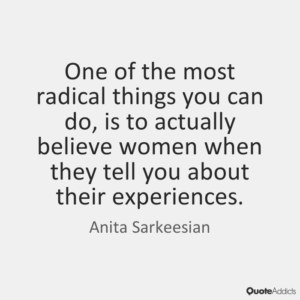 The following is my personal opinion and unconnected to any SFWA activity. I am speaking as a member of the speculative fiction community, one that has been involved in it for a decade and a half now, and one that has watched its internal workings with interest.
The following is my personal opinion and unconnected to any SFWA activity. I am speaking as a member of the speculative fiction community, one that has been involved in it for a decade and a half now, and one that has watched its internal workings with interest.
I met Monica Valentinelli in 2016 at GenCon. I don’t know her well, but I’m proud to count her as a friend and she is one of the people I have consulted with about issues gamewriters face and the gamewriting community overall. She has been a valued bridge-builder and I trust her judgment. For those who don’t know about the recent events prompting this essay, here is her account of the event as well as some reactions.
Monica is currently being punished for speaking out, with vitriol, suggested boycotts, and more, all for going public about her decision. Forces with an interest in women not speaking out have decided to make her a cautionary tale, particularly since she’s dared to lead to other people, including men, to follow her example.
One manifestation of that is a brief statement asking why she hates women, declaring that her example will make conventions reluctant to invite any women in the future. Let’s unpack that one a little because the underpinnings seem ill-constructed to me.
There are many kinds of humans in the world. That means there’re also many kinds of women. The logic of the above statement says two things: 1) that it is wrong for people speak out about conditions that are uncomfortable, unprofessional, or sometimes even dangerous and 2) that only people with the strength to survive a gauntlet that can include being groped onstage, being mocked publicly, having their work denigrated for no reason other than having been produced by a woman, and a multitude of other forms of harassment deserve careers and the rest are out of luck. Does that really need to be demanded for someone to have a career? Writers are notoriously unstable mentally as it is. Serial harassment is a professional matter.
This was underscored for me on a Norwescon (a con that does a great job with selecting programming and volunteers and understands the issues) panel that I moderated last Friday, Standing Up to the Mob, with panelists Minim Calibre, Arinn Dembo, Mickey Schulz, and Torrey Stenmark. The description was:
How do you support female creators who are being harassed online by the ravening hordes of the unenlightened? Tips for voicing your support in ways that mean something.
Here are Arinn Dembo’s excellent notes on the panel overall.
Harassment is not confined to female creators: anyone who is “othered” is particularly at risk for storms of online harassment. But women are more subject, on the average, to gender-specific slurs, accusations of sexual activity/inactivity (slut/frigid), and rape-threats. And, as with Monica and countless other women, it bleeds over into physical space with intimidation, unwelcome advances, stalkers, or attacks from random men just because they were the closest woman.
I can tell you from personal experience that women get made uncomfortable at conventions on a regular basis, that I have heard literally dozens of these stories, and read dozens more online. That online threats spill over into real life intimidation and more threats, sometimes outright attempts, to harm our health, our finances, and our loved ones “” often children. The issue is real. It is time to stop pretending it is not.
What follows is an attempt to collect some notes from that panel and use them to explain why I think what Monica did was brave and inspiring, and why it should be a kick in the butt to do something.
The panel was specifically about online harassment. If you’re reading this online, you are part of that world as well, and you may have noticed instances of online harassment before. If you haven’t, I can assure you they’re there. The harassers’ agenda is to overwhelm the victim, to cut their productivity, and to punish them for some perceived slight while at the same time making an example of them so other creators will hesitate before speaking out.
How can you support an online creator that is under attack? Some methods listed during the panel:
Our community should protect its own and behave like a healthy immune system, coming to the aid of parts under attack. But it is not enough to rely on the goodwill of individuals. That moves me to the metaphor of the missing stair, which came up frequently in the panel.
If you’re not familiar with it, the analogy deals with a serial harasser in a community. Everyone in the community knows about them, and the way its deal with is to warn people privately: Don’t get caught in an elevator alone with X, don’t accept invitations from Y. Watch out for Z, they pinched my butt so hard it left a bruise. It’s like a staircase with a missing stair, which everyone knows not to step on. Over and over, despite the fact that people keep tripping. Keep getting hurt: physically, mentally, economically.
It’s time to stop pretending the missing stair doesn’t need to be fixed. Relying on word-of-mouth means that the people who are new, who are just entering, are the ones most at risk of trying to step on it. Some conventions have tried to deal with it in one way or another; others plead ignorance, saying that each convention is organized by different people, so how can this knowledge be passed along? In my opinion the situation is unacceptable.
Monica has done the most important thing people can do against harassment: speak up. Odysseycon failed to do the second most important: believe someone when they say, “this is my experience.”
How can we repair the missing stairs so no one is hurt by them again? In my opinion, there needs to be some sort of way for conventions, conferences, and other organizations to compare notes in a systematic way, perhaps a database where, each time there is an incident, it gets documented. So a convention organizer could check: is the person I am considering using at my convention someone who has harassed people in the past? Because con organizers need to know what they are taking on.They need all the information there and findable so they cannot ignore it.
Such a system would depend on people coming forward and on people not being punished for speaking up. One objection that gets raised to such a system is: what if it gets used unfairly? What if someone targets a person and uses the system against them?
It is a valid question, though perhaps not quite as strong a possibility as some people might paint. However, having the database would let the convention organizer look at the incidents. Are they all coming from one person? Then they may want to investigate further. Are they coming from multiple people? Then there is a problem. A serial “blamer,” someone intent on weaponizing the system, would in fact be exposed by it.
One reason this idea of tracking incidents sometimes creates unease is the idea of a formal blacklist to replace the current web of gossip and tips passed along among con organizers, authors, and other publishing professionals. That is not the point. The point is to allow con organizers to be informed when making their decisions. If harassment is something they don’t want to worry about, they don’t need to consult the database. But for the ones who want to make sure every guest feels welcome, this would be a valuable source of information. And it would be more objective than that web of gossip, and let people know that they’re not the victim of some background campaigns that they don’t. Indeed, this system would act to prevent mislabelings.
The inevitable question, “Why doesn’t SFWA do it?” will be raised. The answer is this: This effort must come from a coalition of the people organizing conventions. They know best how something like this should be structured and administered, and it is not my place to tell them how to do it. SFWA has provided some useful resources for conventions; both the Accessibility Checklist for SFWA Spaces and the Policy and Procedure on Harassment in SFWA Venues statement are available online.
This is what I know. The missing stair is tripping up newcomers to our community. People are being hurt by it, even the ones who know how to navigate it well, by efforts to pretend it doesn’t exist. The fact that we, the fantasy and science fiction community at large, tacitly allow this situation ““ the enabling of serial harassers in a way that drives out new writers, fans, and publishing professionals — absolutely infuriates me. We need to start talking seriously about how something like this should be implemented in a way that is both as fair and is effective as possible. For Pete’s sake, people.
I welcome conversation here, particularly between people with actual experience organizing and running cons. Mine consists of going to a lot of conventions over the past decade or so and watching the SFWA events team put on an amazing conference each year without my assistance, while congratulating myself on having avoided all the work while being to reap the benefit of their hard work. However, I do have plenty of experience with comments, which will be moderated for obvious reasons.
...

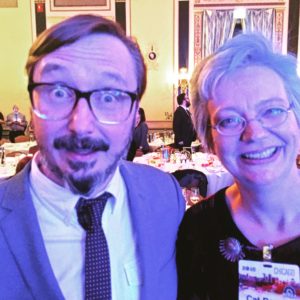
I write this amid a welter of notes, business cards, and obligations/opportunities acquired over the course of what was, for me, the best Nebula weekend I have ever attended. Part of that was the number of attendees who came up to express their appreciation of the programming, the award ceremony, the events, the overflowing book bags, the volunteers, the Nebulas issue of the Bulletin, the volunteer breakfast, and even with the way that they think SFWA has been going over the course of the last year. That is, to put it mildly, most gratifying, and is among the reasons I returned from Chicago renewed, refreshed, and re-enthused. A little under a year of my two-year presidential term lies behind me; I’m curious to see how much can be achieved in the next year.
Thank you to everyone who attended, both in person or virtually by spreading the word and retweeting. It was a weekend that was full of wonderful community and a chance to connect with new and old friends. There were so many moments that will live in my heart, including:
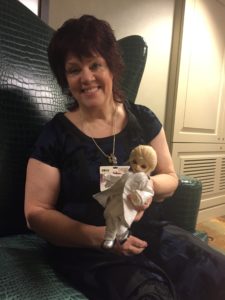
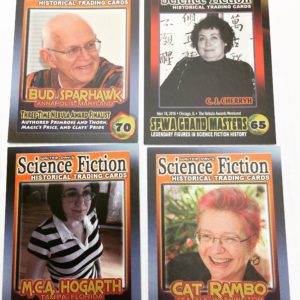
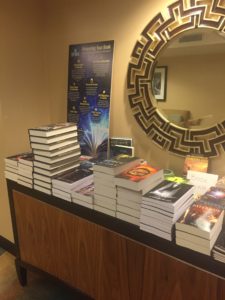
For me, so much of the weekend was a reaffirmation of joy in our genre and the worlds that we love, worlds created by some of the best and brightest. Opportunity to talk with so many talented, kind, and outstanding members of the industry. A chance to stand by one of my heroes, someone whose work I’ve read most of my life and who has been one of my role models, and see her body of work recognized. A chance to be in a place where people treated each other with respect as peers and took pride in each other’s accomplishments, where there weren’t the sort of meanspiritness and petty behaviors that belong on the playground rather than among fellow professionals. A chance to tell people some of what SFWA’s been working hard at in the past year, and some of what’s coming down the pike.
Here’s some of my favorite Nebula write-ups:
...
 This morning the question was raised for me as to whether or not SFWA will hold a business meeting at World Fantasy if they do not produce a policy for handling harassment that matches up with the SFWA guidelines. (I myself am not attending WFC this year for reasons that have no connection to any of this; Susan Forest, the current SFWA Secretary, will be running the meeting if it is held.)
This morning the question was raised for me as to whether or not SFWA will hold a business meeting at World Fantasy if they do not produce a policy for handling harassment that matches up with the SFWA guidelines. (I myself am not attending WFC this year for reasons that have no connection to any of this; Susan Forest, the current SFWA Secretary, will be running the meeting if it is held.)
There’s been a lot of controversy about the current WFC policy and my understanding is that they are looking at amending it right now. So my answer depends very much on how it’s amended, actually. If the policy doesn’t match up with ours sufficiently to keep SFWA members and their families able to enjoy the convention and participate freely, we may not have the business meeting. That remains to be seen.
The SFWA guidelines, which have been around since 2011, are here. I’m not part of the group that produced them, but I’d like to go through and explain why I find ours adequate in a way the existing WFC policy is not.
...

Caren and I arrived Wednesday evening and checked into the Davenport Grand, which was the same hotel as the SFWA Suite. We headed up there immediately after dumping up luggage to consult with SFWA Volunteers Extraordinaire Cat Greenberg and Terra LeMay. Heading out for food, we ran into the inimitable Ken Scholes, which was unfortunately just about the only time I saw him other than in passing at the con. After that I hung out in the SFWA suite for a while but we went to bed pretty early, since I knew it was going to be a long convention.
Thursday morning started with early AM swapping back and forth of mail about SFWA stuff and then I wandered down to Stroll with the Stars, where I saw some of my very favorite people in the world and met lots of new friends. Spokane was beautiful along the river — lots of visual interest and pretty things. Stu Segal led the amble while David Gerrold, Vonda N, McIntyre, Lawrence M. Schoen, Stphen Segal and Tom Smith were fellow walkers.
After that I went off to the board meeting. Thank you for coming, Jenn Brozek, Susan Forrest, Matthew Johnson and Susan Pinkser, as well as to Kate Baker and Bud Sparhawk for being willing to attend virtually. While the SFWA board meets sort of continuously in the form of a discussion forum on the SFWA boards, it’s nice to meet face to face and get to talk about things quickly. Because there wasn’t a full assemblage of us, we just did it in one of the SFWA suite rooms, which seemed to work well and saved us money, which I always approve of. I had to duck out of the meeting and go off and talk to the con folks after lunchtime about a table issue (this was not the smoothest con we’ve ever had, particularly with hotel difficulties, but we muddled through.)
...
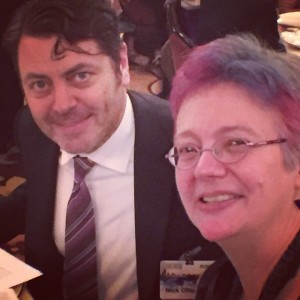
Starting the Nebula Weekend Off, or Friday Begins on Wednesday
Wednesday I flew in and lucked out: Kate Baker, SFWA’s awesome Operations Director, and I arrived around the same time, so we shared a taxi in. That was an experience in and of itself — the driver driving on the shoulder of the road, more than once, while Tagore songs blasted us and we shouted conversation over the roar of the wind through the window I couldn’t roll up. We arrived at the Palmer House unscathed.
Thursday I spent the day in the SFWA board meeting. We have board meetings face to face twice a year as well as the ongoing session on the discussion boards and assorted video calls. The board meetings are a nice chance to talk out stuff quickly, so we covered a wide range of things. I have a certain impatience with meetings engrained from years in academia and the corporate world, but Kate Baker had arranged to have enough coffee and food there to sustain us, and there are definitely worse people to be stuck in a room all day with. 😉
...
Want access to a lively community of writers and readers, free writing classes, co-working sessions, special speakers, weekly writing games, random pictures and MORE for as little as $2? Check out Cat’s Patreon campaign.

"(On the writing F&SF workshop) Wanted to crow and say thanks: the first story I wrote after taking your class was my very first sale. Coincidence? nah….thanks so much."

(science fiction, short story) Most people called her Phoenix. Her former crew used “Captain” before that and “Sir” afterward. Ruby and Ada respectively called her “mother” and “g’ma.” Her hair was silver – not white, but genuine, metallic silver, a long fall against her pale blue skin, the color of a shadow on a piece of willow ware, that made her seems ageless despite the century and more that lay upon her, not to mention all those decades of pirating.


This site is protected by reCAPTCHA and the Google Privacy Policy and Terms of Service apply. This site is a participant in the Amazon Services LLC Associates Program, an affiliate advertising program designed to provide a means for sites to earn advertising fees by advertising and linking to Amazon.com.